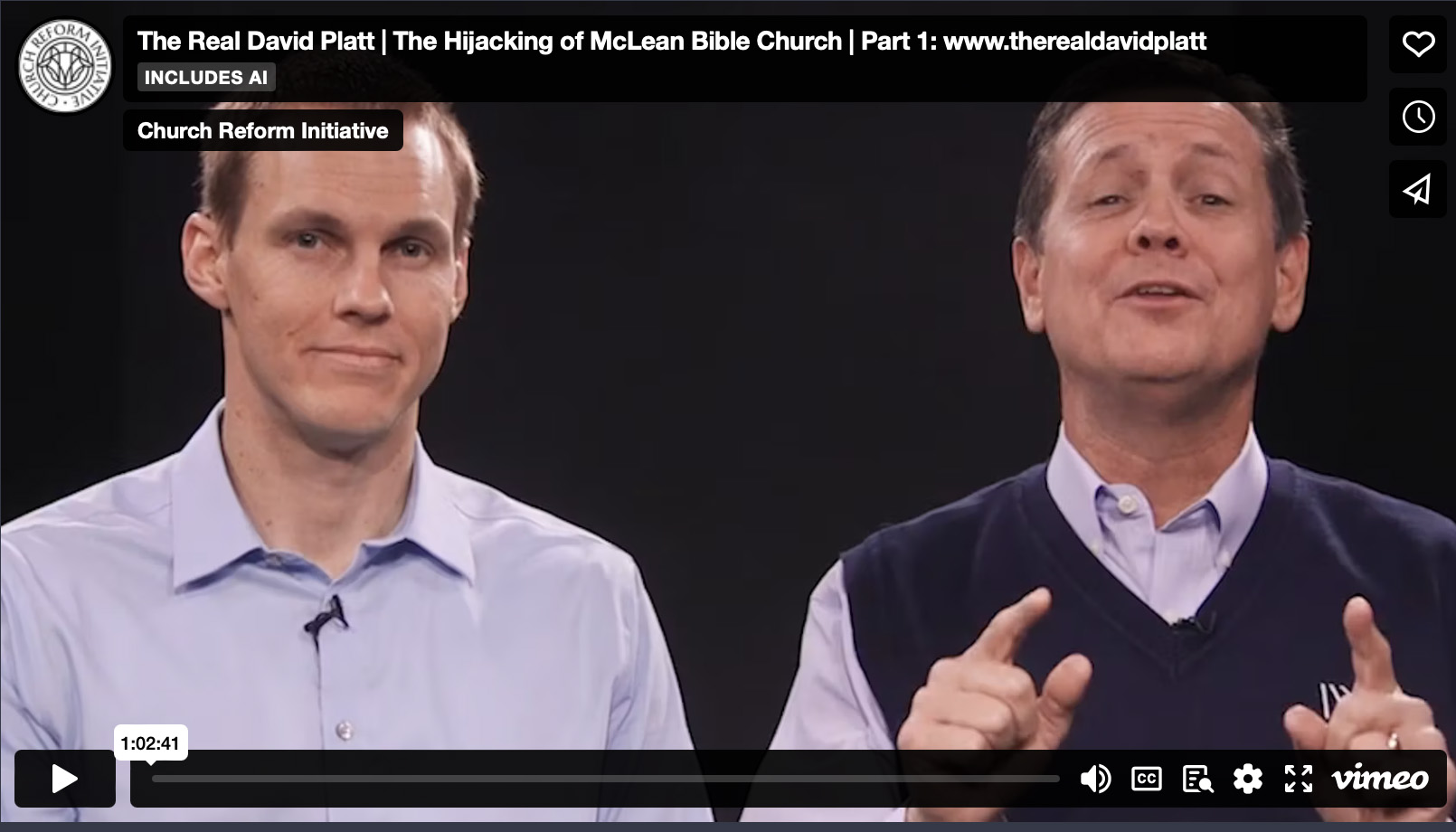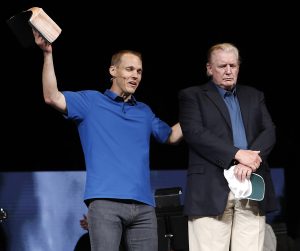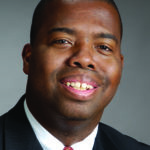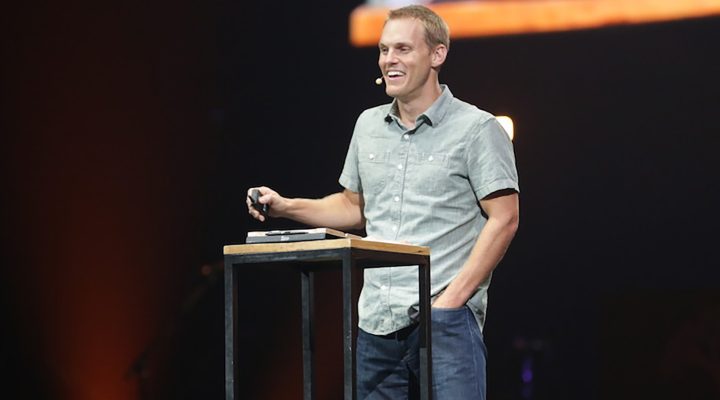Two weeks ago, I received a press release from a PR firm inquiring about my interest in interviewing pastor and New York Times bestselling author David Platt. The request struck me as unusual, as Platt typically only grants interviews coinciding with new book releases, which is not now.
Nevertheless, given his recent op-ed on lostness and my own spiritual interest in evangelism, I was intrigued by the opportunity to engage with someone who rarely gives interviews. What neither the PR representative nor Platt disclosed was the impending release of a documentary about Platt — information that would have significantly influenced my approach to the interview.
The truth only emerged when I contacted the PR firm seeking clarity on what I initially dismissed as more allegations from disgruntled members. The firm’s admission that they knew about the documentary’s planned release revealed a calculated strategy to paint Platt in a positive light before its release. When I subsequently requested a follow-up interview with Platt to address these revelations, he was suddenly unavailable — a stark contrast to his earlier accessibility.
That two-part film, produced by Church Reform Initiative, is one of the most astounding things I’ve ever seen resulting from a church schism. A dissident group from McLean Bible Church has been after Platt for seven years now, and this is the latest salvo in their battle.

David Platt and Kevin Ezell in a screenshot from the first installlment of the documentary about David Platt’s leadership at McLean Bible Church.
Rise to prominence
Before David Platt became a household name in evangelical and Southern Baptist circles, his reputation already was building at New Orleans Baptist Theological Seminary, where stories of his potential circulated among faculty and students. After earning a bachelor’s degree in journalism from the University of Georgia, he enrolled at New Orleans Seminary, where he earned three degrees, including a Ph.D.
While in New Orleans, Platt became assistant professor of expository preaching and apologetics and served Edgewater Baptist Church as pastor.

Jim Shaddix
His mentor at New Orleans Seminary, Jim Shaddix, played a pivotal role in Platt’s rapid ascent. Shaddix is a well-placed connector who co-authored a book with Jerry Vines — one of the “conservative resurgence” presidents in the SBC.
In 2006, Shaddix served as interim pastor at Brookhills Church in Birmingham, Ala., a flagship SBC church. That pastor search resulted in Platt being named pastor there, making the 27-year-old the youngest megachurch pastor in America.
During his eight-year tenure at Brookhills, Platt published his first book, Radical, and launched the Radical movement, which describes itself as “an organization that helps people follow Jesus and make him known in their neighborhood and all nations.”
According to the documentary, the church funded the launch of Radical, not Platt personally.
This movement propelled Platt more into the spotlight.
The same year, 2012, Platt was a contributor to Finish the Mission: Bringing the Gospel to the Unreached and Unengaged with John Piper, David Mathis, Ed Stetzer and Louie Giglio.
From there, Platt gained traction as a Calvinist concerned about world evangelization — making him a key figure in a Southern Baptist Convention straddling the tension of re-emergent Calvinism and 20th-century warm-hearted evangelism.
That set him up for what happened next.
International Mission Board
In 2014, Platt was named president of the SBC International Mission Board. That hiring was controversial from the start because unlike all his predecessors, Platt had no experience as an on-the-field missionary.
Herschael York, a Southern Baptist Theological Seminary professor who at the time was serving as a trustee of the IMB, wrote: “We did this for one very stark, simple reason: this man is anointed by God and has a passion for missions like no one else. He is a gifted leader and a brilliant strategist, but the purity and humility of his heart sets him apart as unique. I am encouraged beyond words and convinced that under the leadership of Kevin Ezell at the North American Mission Board and David Platt at the IMB, the greatest days of Southern Baptist missions lie ahead.”

David Platt
The chairman of trustees — and chairman of the presidential search committee — at the IMB when Platt was elected was David Uth, pastor at First Baptist Orlando, Fla. Uth’s second in command at First Baptist Orlando was Danny De Armas, who simultaneously chaired the trustee board at the SBC North American Mission Board.
Platt’s tenure at the IMB lasted less than four years. Despite lacking experience managing large organizations, the 36-year-old implemented sweeping changes, including a massive forced retirement of field missionaries. His strongest qualification appeared to be his status as a bestselling author rather than organizational leadership experience.
Then while still serving full-time as IMB president, Platt was named teaching pastor at McLean Bible Church 109 miles away from Richmond. Although he and trustees at first assured Southern Baptists Platt could do both jobs, he resigned the IMB presidency within the next year to devote his full time to the church.
The transition was facilitated by Paul Akin, son of Southeastern Baptist Theological Seminary President Danny Akin and one of Platt’s senior staff members at the IMB.
Upon departing the IMB, Platt offered a candid assessment of denominational politics: “I hate the politics of the SBC. And I don’t say that as an outsider. I say that as an insider these last four years. Some of the lowest points in my leadership have been when I found myself participating in them — jockeying for position, continual self-promotion, backroom deals followed by spin in the front room, strategizing like brothers are your enemy.”
For him, what was to come next might have been worse.
McLean Bible Church
McLean Bible Church was founded in 1961 as a nondenominational church serving the Virginia suburbs of Washington, D.C.
The long-term pastor there, who preceded Platt, was Lon Solomon, who came from a distinctly conservative and nondenominational background. McLean Bible Church never was a Southern Baptist church.

President Donald Trump listens to Pastor David Platt as he prays for Trump at McLean Bible Church, in Vienna, Va., Sunday June 2, 2019. (AP Photo/Jacquelyn Martin)
The link between McLean and the SBC was strengthened through Clint Clifton, who served as NAMB’s church planting strategist for the D.C. area. Clifton, who tragically died in a plane crash in January 2023, maintained office space within the church building — a curious arrangement given McLean’s constitutional prohibition against denominational alignment.
According to the new documentary, many church members remained unaware of these denominational connections and that church funds were being directed to the SBC under Platt’s leadership. When members questioned these ties, critics found themselves removed from church membership. Platt consistently characterized the relationship as a “partnership” rather than addressing direct questions about Southern Baptist affiliation — a position later echoed by Ashley Clayton of the SBC Executive Committee and NAMB, who subsequently admitted his word choice was poor.
Among multiple accusations lobbed at Platt by disgruntled members at the church was that he secretly was making the church Southern Baptist. Five church members filed a lawsuit against Platt, alleging financial mismanagement and other improprieties. The two-part documentary presents extensive testimony about these concerns, including:
- Controversial handling of race and Critical Race Theory issues
- Undisclosed SBC connections despite constitutional prohibitions
- Financial transfers, including a $650,000 payment to Platt’s Radical organization
- Systematic removal of members who questioned leadership decisions
- Lack of transparency in denominational relationships
What has emerged at McLean Bible Church is one of the most curious examples of the intersection of denominational and nondenominational alliances combined with the perils of a rapid rise to leadership.
This is a story that keeps getting bigger, not smaller.
Personal reflection
Until recently, I maintained a cordial relationship with Platt, even praising his leadership abilities in navigating the complex landscape of evangelical culture during our last conversation. The conspicuous absence of any mention of the pending documentary during our interview, coupled with its timing, now raises serious ethical concerns.
Had I known about these circumstances, my questions would have focused on the documentary’s allegations and the church’s denominational affiliations.
In religious leadership, as in journalism, character and transparency form the bedrock of credibility. While I don’t subscribe to every claim presented in the documentary, the pattern of behavior it reveals raises legitimate questions that demand serious consideration.
Our character ultimately defines us, and the evidence presented suggests a troubling disconnect between public persona and private conduct.
One of my journalism professors taught us this truth: When a story fails to reflect key points or when you’ve been given misleading information, the only ethical response is to own it and set the record straight.

Maina Mwaura
Maina Mwaura is a freelance writer who lives in Kennesaw, Ga. He is a graduate of Liberty University and New Orleans Baptist Theological Seminary.
Related articles:
David Platt hopes for a biblical gospel instead of an American gospel
For now, David Platt has won the battle against internal critics at McLean Bible Church
David Platt steps up schedule to step down at IMB


